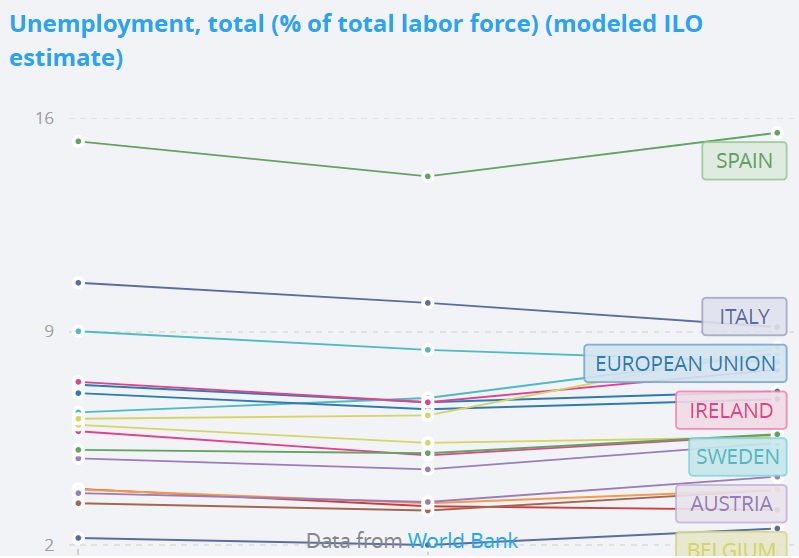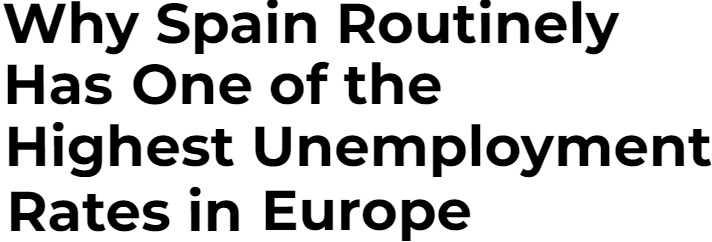Spain is more economically backwards than most nations in Western Europe. As a public finance economist, my gut instinct is to blame bad fiscal policy.
And there’s certainly plenty of evidence for that view. After all, taxes drive a huge wedge between pre-tax income and post-tax consumption. So there is not much incentive to be a productive member of society.
But it’s important to remember that fiscal policy is just one of the ways politicians can hurt an economy.
In an article for the Foundation for Economic Education, Michael Peterson explains how labor law is stifling job creation in the Spanish economy.
Spain doesn’t suffer from a labor shortage like in the United States, but something much worse—a sclerotic labor market marked by…Employment Protection Legislation (EPL) that constrains employers from hiring and firing workers. …These figures help explain the high unemployment rates observed in Spain over the past three decades—averaging 17.3 percent compared to 7.6 percent for EU-8 countries and 5.2 percent for the U.S. …one study showed that Spain’s unemployment rate wouldn’t have been as high following the Great Recession had there been less onerous costs to firing workers in permanent jobs… In another study, researchers from the Banco de España found that the duality function of the labor market increases unemployment volatility relative to a unified employment system (like in the U.S., for instance). A similar study finds that increasing the number of workers on temporary contracts reduces the number of days they worked by 4.5 percent and their total earnings by 9 percent. …Additionally, the labor force participation rate has steadily declined in Spain since 2012—from almost 60 percent to 56.7 percent. …Spain also has one of the highest historical long-term unemployment rates among OECD nations, further reflecting the rigidities within its labor market.
Here’s the chart that accompanied the article.

If you peruse the EU’s data on unemployment, you’ll find that Greece also has very high levels of joblessness. And for largely the same reasons.
By the way, Mr. Peterson also notes that excessive tax rates play a role.
Another factor that we can’t ignore is the high social security tax on employers in Spain, which stands at 29.9 percent.
So what’s the bottom line?
The most important thing to understand is that some of the politicians who support “employment protection legislation” may genuinely think they are helping workers.
But their efforts are backfiring for reasons that should be obvious.
- Making it more expensive to hire workers means fewer workers will be hired.
- Making it more expensive to fire workers means fewer workers will be hired.
- Making it more expensive to employ workers means fewer workers will be hired.
P.S. Labor law is one area where the United States is far ahead of most European nations.
P.P.S. I applaud Spaniards for coming up with clever ways of avoiding excessive taxation.
P.P.P.S. Spanish politicians balance their bad labor taxation with bad business taxation.
———
Image credit: Efraimstochter | Pixabay License.



